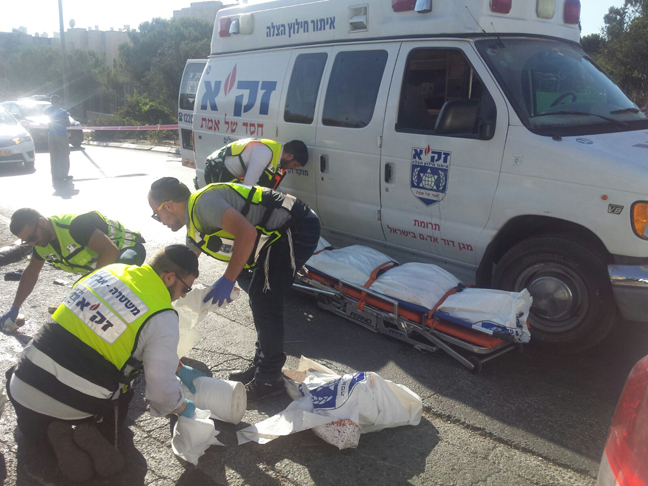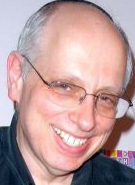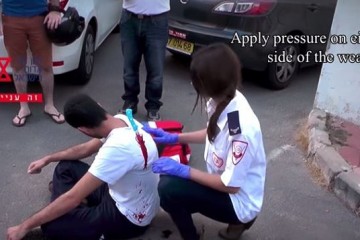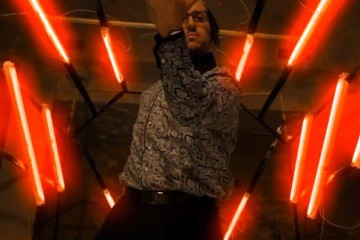Israel’s emergency workers, part two

The Jewish Internet with Mark Mietkiewicz, Special To The Dayton Jewish Observer
We continue our look at Israel’s emergency workers this month with a focus on the dedicated volunteers who deal with the heartbreaking aftermath.
But first a look at those who risk their lives to prevent a tragedy.
Members of Israel’s bomb squads — or sappers — risk their lives trying to neutralize suspicious objects before they can do any harm.

Jewish Homemaker magazine devoted a lengthy article to the stories of Gal, Rami and Yaacov, members of Jerusalem’s bomb squad.
“Much of the work is pretty routine,” said Rami, “but as soon as you’re faced with a real event, a switch goes off in your head; you go into a different gear. You don’t think about the danger. You think how you’re going to diffuse the package (http://bit.ly/isemerg10).”
The article asks, “Has Rami, this super-cool Israeli with a crew cut and perpetual macho smile ever felt his hands shake?”
His response, “If you think about being injured, you can throw in the towel. All you can think of is how to do the work most efficiently and safely. Afterwards, you go over it in your head and then the shock of what you went through hits you.”
Israeli sappers were joined in 2011 by Inbal Gawi, Israel Police’s first female sapper. “At first I wanted to break the limits, mostly for my own sake, but now I feel like I did it for other women as well,” said the 26-year old Haifa native (http://bit.ly/isemerg11).
Immediately after a disaster, one of the most distressing duties falls to ZAKA. Members of ZAKA, most of whom are Orthodox Jews, arrive at the first word of a terrorist attack or civil emergency.
Wearing black kippot, tzitzit fringes and bright orange emergency vests, their task is to search for limbs and scrape down buildings splattered with blood and flesh (http://bit.ly/isemerg12).
According to Jewish tradition, bodies must be treated with respect and all body parts must be given a proper burial.
While rescuers work against the clock to save the living and police make legal identification of corpses, ZAKA is concerned with kavod hamet, the halachic (Jewish legal) concept of proper burial.
The letters ZAKA are a Hebrew acronym for Zihui Korbanot Ason, Disaster Victim Identification. However, the organization prefers the name Identification, Extraction and Rescue — True Kindness (http://bit.ly/isemerg13).
“It’s a holy act,” says founder Rabbi Elazar Gelbstein. “God created us in his image and we must do his deeds. This is our job. It’s hard and it breaks us but it must be done (http://bit.ly/isemerg25).”
A look at the Breaking News page on the ZAKA website is impressive and sobering (http://bit.ly/isemerg15).
ZAKA’s Rapid Rescue Unit’s paramedics provide immediate emergency assistance across Israel.
Although members of ZAKA are best known for their tireless efforts within Israel, the organization’s Matti Goldstein explains why his rescue team came to Haiti following its devastating 2010 earthquake, and continued to work even on Shabbat.
“People asked, ‘Why are you here? There are no Jews here,’ but we are here because the Torah orders us to save lives. We are desecrating Shabbat with pride (http://bit.ly/isemerg16).”
Ezer Mizion is best known as an Israeli health support organization that focuses on the country’s sick, disabled and elderly, as well as running the world’s largest Jewish bone marrow donor registry — 1,971 transplants since 1988 (http://bit.ly/isemerg17).
But they also marshal their impressive resources to provide support, such as after the harrowing 2014 murders at the Bnei Torah Synagogue in Har Nof, Jerusalem.
Ezer Mizion assisted in organizing a special evening attended by 400 people to offer an immediate response to the attack.
Rebbetzin Tzipporah Heller, mother-in-law of one of the injured, credits “the women of Ezer Mizion (who) kept us well supplied with food, calming conversation and practical advice (http://bit.ly/isemerg18).”
As Israel’s largest volunteer organization, Yad Sarah operates a variety of programs including fitness centers for people with special needs, geriatric dental clinics — as well as a meeting place in Jerusalem for victims of terror (http://bit.ly/isemerg20).
Haim Gelernter was bringing in the laundry from his Jerusalem apartment porch when a sharpshooter from Beit Jallah fired a bullet that destroyed his right eye.
Years later, Gelernter attends the support club not for treatment but to talk.
“If there was no Yad Sarah, I would have a problem. This is a way to fight off depression — this great place, and my nine dear grandchildren.”
Social worker Noa Talshir adds, “Together in the group, this loneliness is alleviated. They feel that they are not alone, that there are others nearby who also bore the brunt of the nightmarish event of a single moment in which their lives changed forever (http://bit.ly/isemerg21).”
Mark Mietkiewicz writes about resources for Jewish life to be found on the Internet. Contact him at highway@rogers.com.
To read the complete February 2016 Dayton Jewish Observer, click here.





